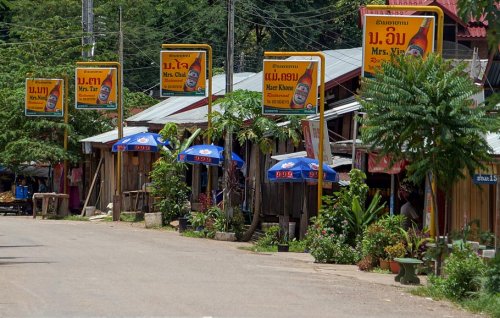New Law Promulgated To Regulate Alcoholic Beverages
A new law promulgated recently aims to better regulate alcoholic beverage businesses and their advertisements, hopefully preventing people from drinking to excess and lessening the resultant social and economic impacts.
According to Article 20 of the 26 page Law on Alcoholic Beverages, venues offering alcoholic beverages are not allowed to be located near healthcare and education centres, state offices, religious venues, embassies, public parks, opera houses, passenger vehicle stations, petrol stations, sports complexes and factories.
In addition, advertisements for alcoholic beverage products must not attempt to persuade members of the public into drinking alcoholic beverages and trademarks of the product must not be shown on the advertisements.
The advertisements are also required to carry warning messages on the consequent heath risks of drinking excessive amounts of alcohol. The warning messages must also be attached to the packaging boxes.
Retail sales of alcoholic beverages are only permitted between the hours of 4:00pm to 11:00pm, with allowances made for exceptional cases as defined by specific regulations.
Sellers are also prohibited from selling alcoholic beverages to anyone under 18 years of age, to people who are intoxicated, to people in uniform or to drivers of motor vehicles.
When sponsoring an event such as a charity event, alcoholic beverage business operators are not allowed to promote alcoholic beverages through advertisements or even the provision of drinks, according to the law.
The law also stipulates that all alcoholic beverages, both imported and domestically brewed beverages, must be of good quality to ensure the safety of customers.
President Choummaly Sayasone recently issued an ordinance to promulgate the law.
Welcoming the law, Head of the Health Promotion Division under the Ministry of Health Dr Khatthanaphone Phanduangsy said the law will be a fundamental instrument to regulate the sale of alcoholic beverages.
However she noted that the content of the law is too general and said there is a need to draft regulations to translate the content of the law into detail in order to ease its implementation.
Dr Khatthanaphone stated that proper management of alcoholic beverage businesses requires collective cooperation from relevant ministries to “take action to strictly enforce the law.”
Members of the National Assembly (NA) have welcomed the introduction of the law, hoping its promulgation would help reduce the negative impacts of excessive drinking.
During the recent NA session, law makers noted that drinking alcohol could harm your health, families and even society and the economy.
NA member for Luang Prabang province, Ms Amphone Sivilaisack said that many women and children have suffered from violence at the hands of drunken husbands.
Parliamentarians also suggested that overconsumption of alcoholic beverages can also lead to certain and chronic diseases, cause road accidents and crimes that cause economic loss.
Many said the absence of proper regulations to manage alcoholic beverage businesses and the promotion of alcohol through advertisements is responsible for the widespread and at times excessive consumption of alcohol in Laos.
A survey revealed recently by the World Health Organisation (WHO) suggested that on average Lao people consume more alcohol than those in any other of the Asean countries – the 10-member regional bloc of which Laos is a member.
According to the survey, average consumption in Laos has reached the equivalent of 7 litres of pure alcohol equivalent per annum.
The new law states that society, communities and families have collective responsibility in educating the young people to be aware of the potential health threats of drinking alcoholic products.
Laos has also proclaimed December 19, the day the NA resolved the law, as Alcohol-Free Day, on which alcohol business operators are prohibited from selling alcohol.
Source: Vientiane Times

